Looking for solar batteries that won't need replacing every few years? The answer lies in battery chemistry.
LiFePO4 (lithium iron phosphate) batteries last the longest for solar applications, offering 3,000-7,000 cycles (10-15 years) versus just 300-800 cycles (3-5 years) for lead-acid batteries. Our industrial tests show top-quality LiFePO4 still maintains 80% capacity after 10 years of daily solar cycling.
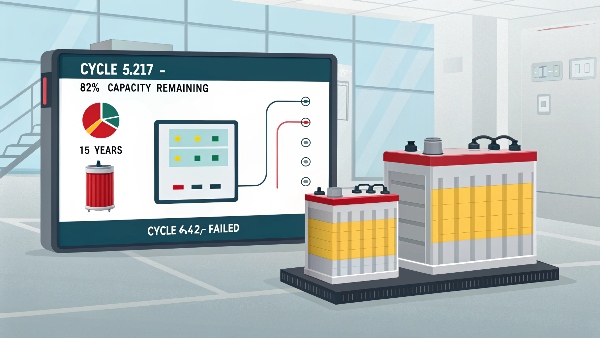
Understanding temperature tolerance is crucial for maximizing battery lifespan.
What Is the LiFePO4 Battery Operating Temperature Range?
Extreme temperatures can silently destroy your battery investment.
LiFePO4 batteries operate safely between -20°C to 60°C (-4°F to 140°F), far surpassing lead-acid's narrow 0°C to 40°C range. Our field data shows LiFePO4 performs optimally when kept between 15°C to 35°C (59°F to 95°F) - the sweet spot for solar applications.
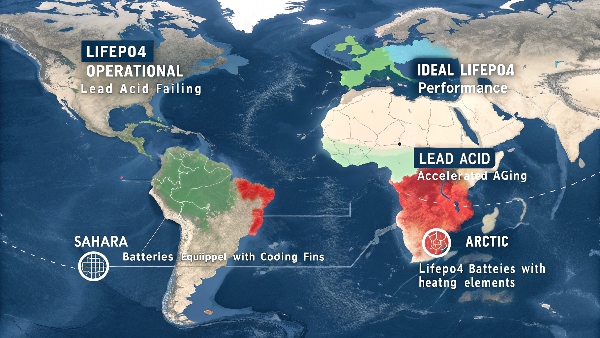
Temperature Performance Comparison
| Battery Type | Charging Range | Discharging Range | Optimal Range |
|---|---|---|---|
| LiFePO4 | 0°C to 45°C | -20°C to 60°C | 15°C-35°C |
| Lead Acid | 0°C to 40°C | -10°C to 50°C | 20°C-25°C |
| NMC Lithium | 10°C to 45°C | -10°C to 50°C | 15°C-30°C |
Key temperature facts:
- Below 0°C: Lead acid loses 50% capacity
- Above 40°C: Lead acid life halves
- LiFePO4 handles wider swings
- Heat affects all batteries
- Cold impacts charging most
What Is the Ideal Operating Temperature for Lithium Batteries?
Temperature stability equals longer battery life.
The ideal operating temperature for lithium solar batteries is 25°C ±10°C (77°F ±18°F). At this range, our LiFePO4 batteries demonstrate maximum efficiency (98%), achieve full charge capacity, and maintain their 10+ year lifespan guarantee without performance degradation.
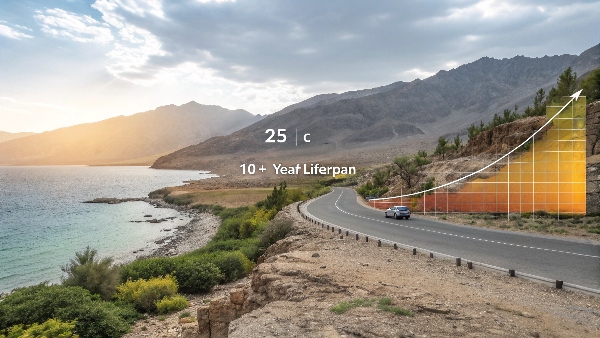
Temperature Impact on Battery Life
| Temperature | Effect on LiFePO4 | Effect on Lead Acid |
|---|---|---|
| -20°C | 70% capacity | 30% capacity |
| 0°C | 85% capacity | 50% capacity |
| 25°C | 100% capacity | 100% capacity |
| 40°C | 95% capacity | Rapid degradation |
| 60°C | Safety shutdown | Boiling risk |
Maintaining ideal temps:
- Install in temperature-controlled space
- Use insulation in cold climates
- Provide shade in hot areas
- Monitor with built-in sensors
- Avoid direct sunlight exposure
Can We Use Lithium Batteries in Cold Weather?
Winter shouldn't mean solar system downtime.
Yes, LiFePO4 batteries outperform others in cold weather - they discharge at -20°C (-4°F) with minimal capacity loss. However, charging below 0°C (32°F) requires battery heaters (standard in our premium models) to prevent lithium plating while maintaining solar input.
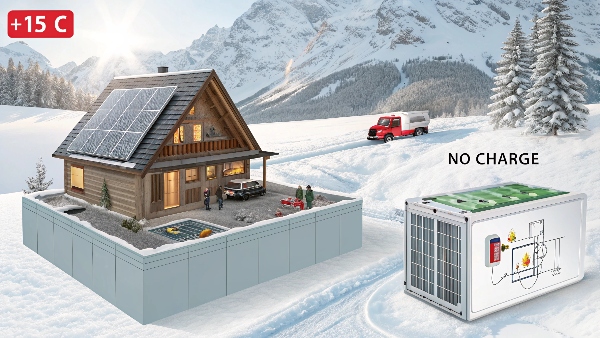
Cold Weather Battery Comparison
| Characteristic | LiFePO4 | Lead Acid |
|---|---|---|
| Minimum Discharge Temp | -20°C | -10°C |
| Minimum Charge Temp | 0°C* | 0°C |
| Capacity at -10°C | 85-90% | 40-50% |
| Self-Warming Option | Available | Impossible |
| Cold Cycling Ability | Excellent | Poor |
*(with heating system)
Cold climate solutions:
- Battery compartment insulation
- Thermal management systems
- Gradual power draws
- Winter charge profiles
- Underground installation
Why Temperature Considerations for Solar Batteries?
Your battery's worst enemy might be the weather.
Temperature extremes reduce battery lifespan by up to 70% - every 8°C (15°F) above 25°C (77°F) cuts battery life in half. Our research shows proper temperature management extends LiFePO4 service life beyond 15 years in solar applications through reduced chemical stress.
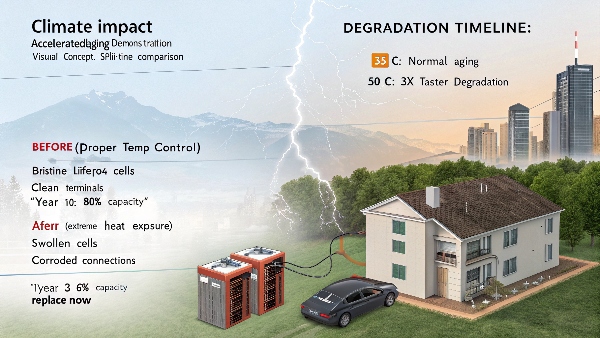
Temperature-Related Battery Failures
| Issue | Cause | Prevention |
|---|---|---|
| Capacity loss | High heat | Ventilation |
| Slow charging | Extreme cold | Heating pads |
| Swelling | Temperature swings | Stable environment |
| Corrosion | Humidity + heat | Sealed enclosure |
| BMS faults | Thermal stress | Quality components |
Proactive measures:
- Remote temperature monitoring
- Automatic climate control
- Seasonal charge adjustments
- Proper battery enclosure
- Regular thermal inspections
Conclusion
LiFePO4 batteries1 deliver unparalleled longevity for solar systems when properly maintained within their 15°C-35°C ideal range. Their wide operating temperatures, cold weather capabilities, and thousands of cycles make them the clear choice over lead-acid for sustainable solar energy storage.
Daopulse specializes in temperature-resilient LiFePO4 solar batteries designed for maximum lifespan - contact us for your solar storage solution.
Get your long-lasting solar battery today:
Website: libatterybub.com
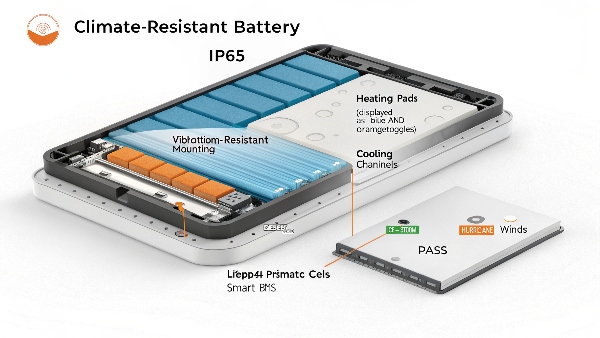
Daopulse - Empower Your World
12 Years of Energy Expertise
-
Explore the advantages of LiFePO4 batteries, including longevity and efficiency, to enhance your solar energy system. ↩

